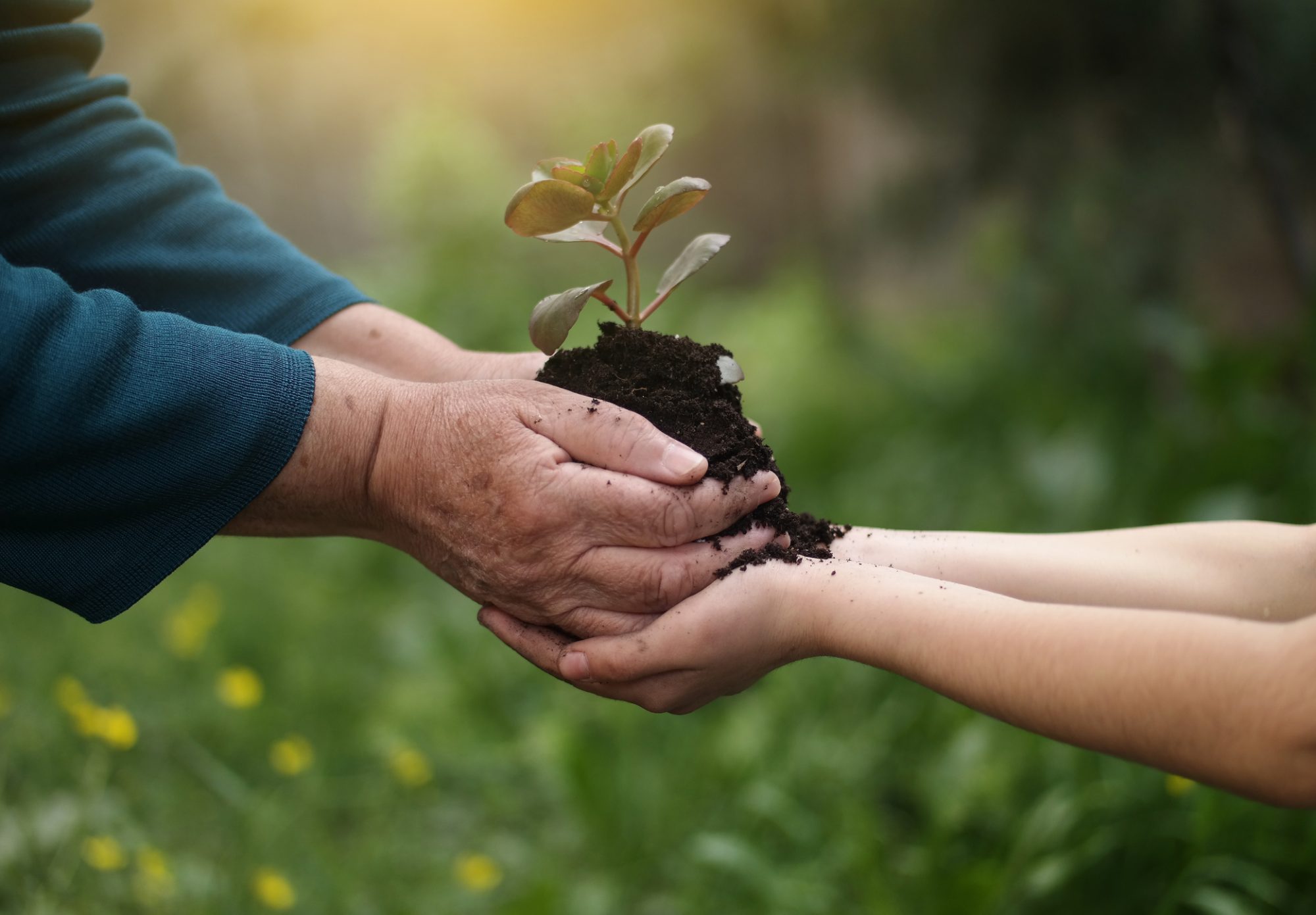
One of the most well-known and enduring definitions of sustainability was coined in 1987 by the UN's World Commission on Environment and Development:
“Development that meets the needs of the present without compromising the ability of future generations to meet their own needs."
Why is this definition so appealing? First, it puts concern about intergenerational equity at the heart of the concept of sustainability. In other words, we should ensure that future generations have at least the same level of economic opportunities and well-being that we enjoy today. This also implies that how we manage the environment - as a source of our natural resources and a sink for our pollution and waste - is critical to sustainability. If the current generation is depleting the environment too much for its development needs, then it may indeed be “compromising the ability of future generations to meet their own needs.”
Second, it raises concern over intragenerational equity. That is, in order to be truly sustainable, we need to meet the needs of the present population. This requires ensuring that all individuals and societies in today’s generation have sufficient access to the environment, its resources, and its many services to meet their basic needs. It also means paying attention to the social dimension of sustainability. Equally, if current access to the environment and its valuable natural resources and services is dominated by wealthy nations, regions, and individuals, then how do we ensure that all individuals and societies meet their basic needs, let alone do so sustainably?
Giving voice to these intergenerational and intragenerational equity concerns is a critical challenge for democracies.
In a democracy, votes and decisions are made by the current generation of adults and not by children or by future generations. Yet, it is the next and subsequent generations that will bear the brunt of the consequences of our unsustainable management of the environment today.
Democracies are also not very good at giving voice to the disadvantaged in the current generation. This includes their own citizens who are poor but, in addition, those poorer nations, regions, and individuals elsewhere in the world who are impacted by the global consequences of our unsustainable activities. Today, environmental risks, such as climate change, freshwater scarcity, deteriorating oceans and coasts, and forest and biodiversity loss, are on the rise everywhere, and as a consequence, poverty, inequity, and environmental injustice are increasing in many areas of the world.
The bottom line is that any democracy that fails to consider how its actions impact the welfare of future generations or of the disadvantaged today will not be sustainable."
The bottom line is that any democracy that fails to consider how its actions impact the welfare of future generations or of the disadvantaged today will not be sustainable.
We should, therefore, ask, what can democratic societies do to give a greater "voice" to these under-represented groups and thus ensure greater sustainability?
There are several important steps that can be taken. First, factors that undermine democracies, such as the failure to enforce the rule of law and ensure access to justice for all, as well as prevailing corruption and bribery, need to be urgently addressed. Second, effective, accountable and transparent institutions need to be developed and maintained so that individuals have confidence in the electoral process, their elected officials and the democratic system of governance. Furthermore, it is important to establish responsive, inclusive and participatory decision-making at all levels, including local and national legislatures, public administration and the delivery of health, environment and other essential services. For example, spurred by a desire to reduce plastic waste and pollution in Fort Collins, a community legislative campaign was initiated, which resulted in voters approving a ban on larger grocers using plastic bags and the imposition of a small fee for paper bags.
We should, therefore, ask, what can democratic societies do to give a greater "voice" to these under-represented groups and thus ensure greater sustainability?"
These steps are necessary to promote democracy and voice at home and to ensure that concern for the future is expressed in today’s decisions. However, further actions are required to broaden and strengthen the participation of other countries, especially developing nations, in the institutions of global governance. International cooperation and providing finances for capacity building in poorer countries are essential for good global governance and for promoting and enforcing sustainable development and strong democracies worldwide. A good starting point would be additional assistance to vulnerable communities and countries worldwide to adapt to climate change or to attain agreed global targets, such as protecting 30% of the world’s terrestrial and marine environments, limiting warming to 2oC and achieving the UN’s Sustainable Development Goals.
Clearly, democracy embodies a profound commitment to human welfare and the sustainability of the world around us. The symbiotic relationship between democratic governance and progress on sustainable development requires making sure that the “voices” of all people are heard to safeguard the well-being of people and the planet, today and in the future.
About the Authors

Dr. Ed Barbier is a University Distinguished Professor in the Department of Economics and a Senior Scholar in the School of Global Environmental Sustainability at Colorado State University. He is an expert in environmental and resource economics as well as international environmental policy.

Dr. Jo Burgess Barbier is an Associate Professor of Economics and affiliate faculty in the School of Global Environmental Sustainability at Colorado State University. Her research focuses on the role of environment and natural resources in sustainable economic development, especially developing countries.
